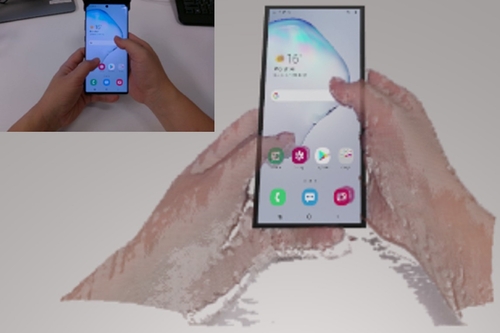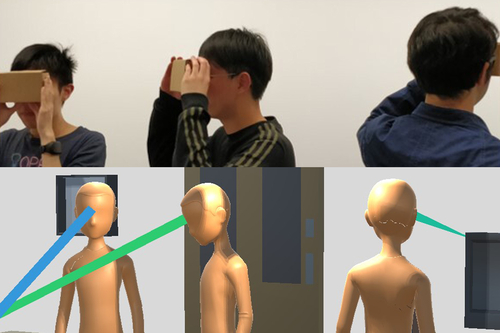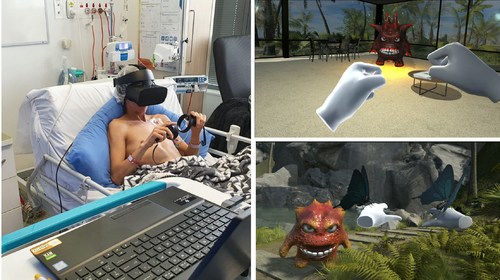Pre-recorded Sessions: From 4 December 2020 | Live Sessions: 10 – 13 December 2020
4 – 13 December 2020
Pre-recorded Sessions: From 4 December 2020 | Live Sessions: 10 – 13 December 2020
4 – 13 December 2020
#SIGGRAPHAsia | #SIGGRAPHAsia2020
#SIGGRAPHAsia | #SIGGRAPHAsia2020











Date: Sunday, December 13th
Time: 12:00pm - 1:00pm
Venue: Zoom Room 2
Session Chair: Christian Sandor, School of Creative Media, City University of Hong Kong
Note: All live sessions will be screened on Singapore Time/GMT+8. Convert your time zone here.
Author(s)/Presenter(s):
Li Zhang, Cyber-Physical Interaction Lab, Northwestern Polytechnical University; Empathic Computing Lab, The University of Auckland, China
Huidong Bai, Empathic Computing Lab, The University of Auckland; University of Auckland, New Zealand
Mark Billinghurst, Empathic Computing Lab, The University of Auckland, New Zealand
Weiping He, Cyber-Physical Interaction Lab, Northwestern Polytechnical University, China
Abstract: This demo shows a prototype system that enables VR users to operate the full-featured smartphone in the virtual world in the same way as they normally do. We explain the design procedure of the system and the strategies we adopted to run the system with high resolution and low latency.

Author(s)/Presenter(s):
Santawat Thanyadit, The Hong Kong University of Science and Technology, Hong Kong
Parinya Punpongsanon, Osaka University, Japan
Ting-Chuen Pong, The Hong Kong University of Science and Technology, Hong Kong
Abstract: We present ObserVAR, a visualization techniques using Augmented Reality that allows the instructor to observe the virtual environment and VR users at a classroom scale. The ObserVAR maps the virtual environment to the instructor's physical environment and optimize the VR users' gaze visualization using a graph drawing technique.

Author(s)/Presenter(s):
Anton Bogdanovych, Western Sydney Univeristy, Australia
Alwin Chuan, Liverpool Hospital, Australia
Abstract: Our virtual reality experience trains chronic pain sufferers to better manage their pain. They learn by following voice-over instructions of a clinical psychologist and through interactions with a virtual character. This game mimics one of the sessions from a psychological intervention that is proven to help reduce perceived pain levels.
